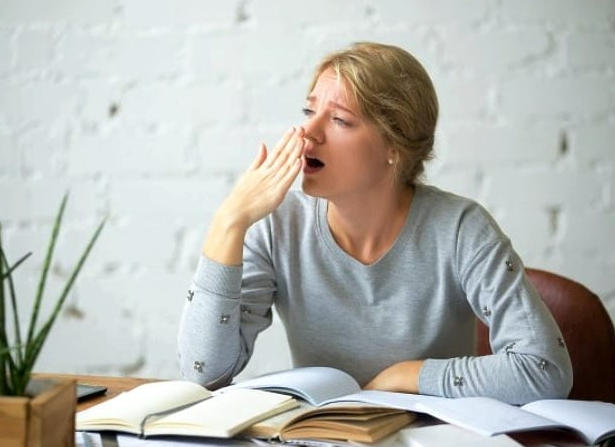Why do we get body pain when we don’t sleep enough?
Sleep disturbances can often be caused by body pain. At times, we feel numb and cannot sleep well at the same time. If you have had a very busy week, for example only sleeping 4 hours at night, but you had nothing to do the following week and wanted to sleep well, you probably experienced extreme fatigue and body aches. You experienced headaches, muscle aches, and boredom due to lack of sleep.
New theories claim that sleep helps our bodies recover. Our brains and bodies sleep after the end of the day just like the workers on the stage clean up messes and messes. As we sleep, neurotransmitters and hormones are produced in the brain and body to tell us that it is time to cleanse our cells.

Lack of sleep causes body aches and pains:
Lack of sleep is strongly related to pain, with 53% of patients who suffer from lower back pain also suffering from insomnia. Sleep disturbances are common among people with muscle pain and fatigue disorders.
Headaches can also be caused by poor sleep or disturbed sleep. In some cases, this pain becomes so severe that it interferes with sleep. Therefore, studies have concluded that not sleeping is directly related to all types of body pains.
When sleep is disturbed, people feel pain more intensely because of a central sensitivity in the body. Sleep deprivation worsens the condition and makes the pain worse. Both factors are also increased by stress and anxiety.
As well as causing systemic inflammation, lack of sleep also releases molecules that cause muscle and joint pain.
Getting a good night’s sleep can reduce your sensitivity to pain, and this has been scientifically proven.
Effects of not sleeping for 24 hours on the body and mind:
People get tired, their pain becomes more severe, their immune system suffers, and their body is more susceptible to infection after 24 hours of not sleeping. The worst part is about your mind because you can’t judge very well anymore, you’re not aware of what’s going on around you, which is quite frightening.
Additionally, after 24 hours of insomnia, you will experience severe conditions such as:
Drowsiness
Decision-making is difficult
Concentration and short-term memory are impaired
Blood sugar levels are high
Cortisol and adrenaline levels are elevated as a result of stress
Sensitivity and irritability
Muscle tension and decreased balance
The effects of not sleeping for 24 hours on people are still not completely understood, but it is known that the brain’s ability gradually decreases during this period of time, and it is about to shut down if it doesn’t have the same power as before. It may even take between 15 and 30 seconds to understand what is going on, and not sleeping for a long time can lead to death. Some people do not sleep for a week or two at a time. To kill someone, you must keep him awake.
If we don’t sleep for 48 hours, what happens?
The longer the waking time, the more severe the effects of insomnia. The body suffers worse conditions and cognitive performance deteriorates after 48 hours of sleeplessness. The brain enters unconsciousness little by little after 2 days of sleeplessness, a state that lasts for a few minutes and occurs unintentionally.
You may have noticed that your memory level has decreased after a few nights of staying up late. 72,000 crashes and 800 deaths were investigated between 2009 and 2013, with nearly a third of drivers admitting to being drowsy at the wheel. That was due to their inability to sleep at night. You’re probably not as alert as the average person if you were on the road and were sleepy the night before. Do not think you can solve everything with a cup of coffee; coffee also needs an hour to work again. When you are tired, it is better to park the car next to it, rest, and then walk again.


